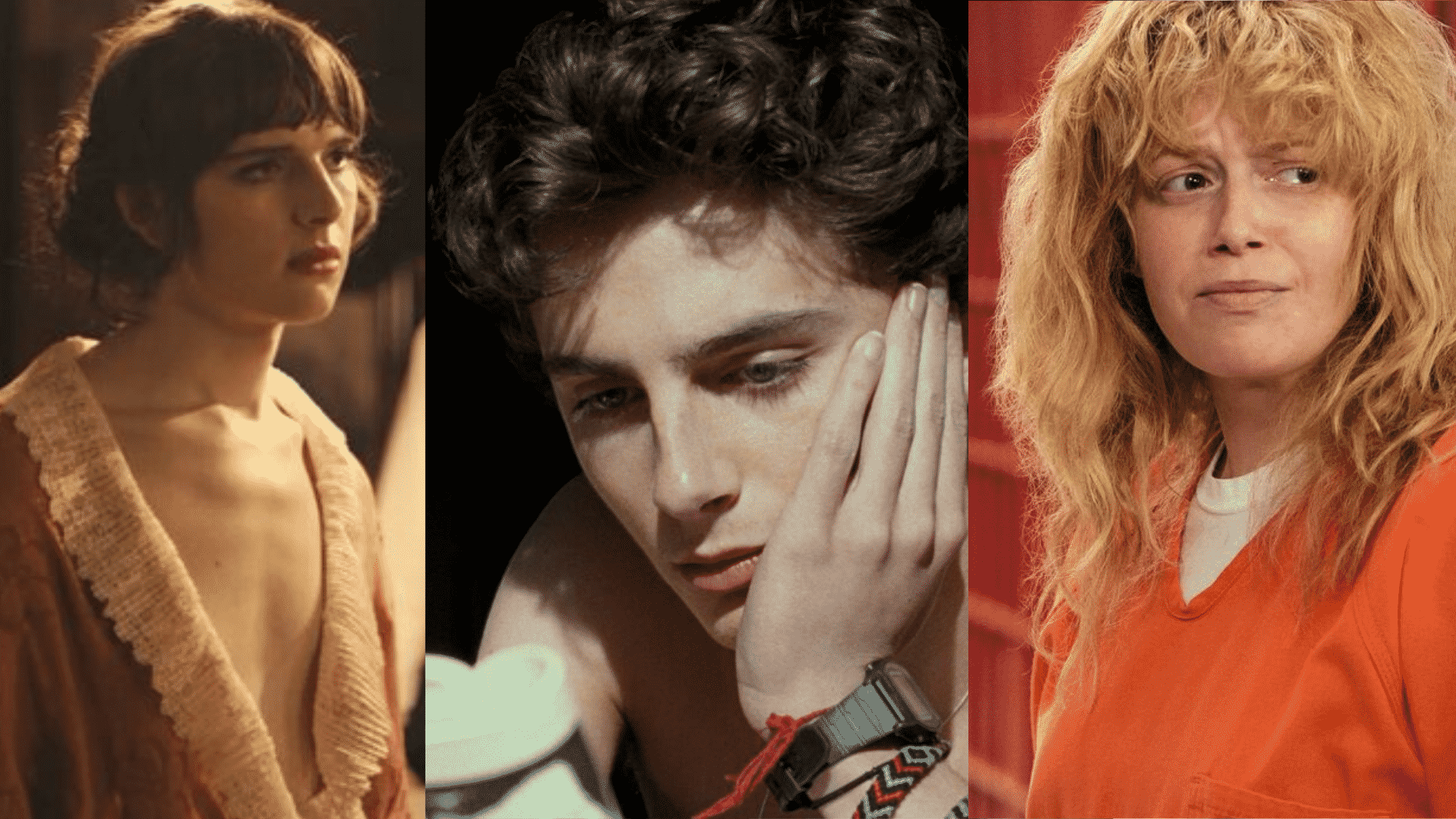
For the LGBTQ community, it’s important to be represented onscreen, especially when same-sex romance is still stigmatized by the media. In 2016, Delta Airlines omitted all the love scenes, even just kissing in the lesbian drama “Carol.” Despite considerable outrage from LGBTQ groups, the airline continued to remove queer romance from 2019’s “Booksmart,” despite its already having an R rating. But in honor of pride month, here are several onscreen characters who got being both LGBTQ and Jewish right — no censorship involved.
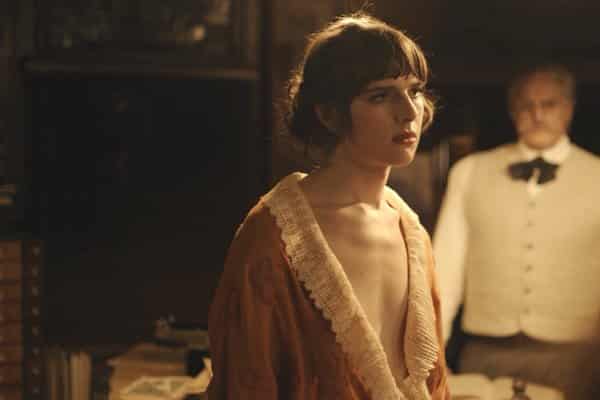
Photo courtesy Amazon Prime Video.
Gittel Pfefferman from ‘Transparent’
Amazon’s “Transparent” was chock full of queer people with strong Jewish identities. But one character particularly worth highlighting is Gittel, the transgender ancestor of the Pfefferman family. Gittel is portrayed by Hari Nef, who is proudly Jewish and trans herself. Gittel gives voice to the countless queer Germans who enjoyed unprecedented freedoms between the world wars and then had their humanity snatched away by the Nazis. Gittel is a patron of the real-life Institut für Sexualwissenschaft (Sexology Research Institute), founded in 1919. It was here that the concept of transgenderism first was coined and the first gender confirmation procedures pioneered. Gittel represents the 20,000 yearly patrons of the Institut whose history was erased as Nazis outlawed their existence, burning the Institut’s books and studies in the street.

Elio Perlman from ‘Call Me by Your Name’
Timothée Chalamet’s portrayal of Elio, a young Jewish boy coming to terms with his sexuality and losing his first love, is a sensitive, raw portrayal of the depth of same-sex love. He’s insecure about being Jewish, coming from a family that describes its members as “Jews of discretion.” When Elio notices how his soon-to-be lover, Oliver, is unafraid to wear a Star of David necklace, he is inspired by how “he was OK with being Jewish. He was OK with being himself, the way he was OK with his body, with his looks.” Oliver empowers Elio to be honest about who he is and it is through the lens of his Judaism that Elio finds the courage to be openly gay.
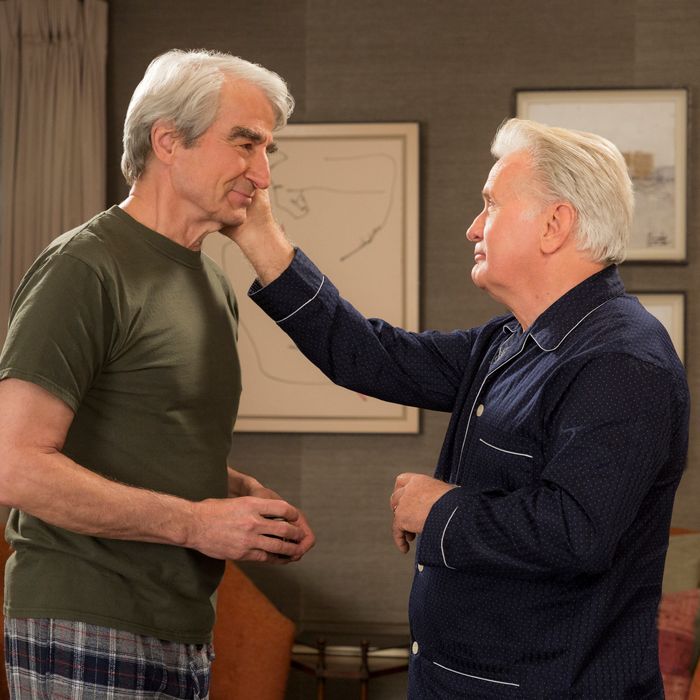
Sol Bergstein from ‘Grace and Frankie’
Few depictions of the LGBTQ community address the golden years and Netflix’s “Grace and Frankie” does not shy away from aging. Sol Bergstein (Sam Waterston), who has left his wife to marry his male partner, is explicitly Jewish and deeply complicated. He is sensitive yet desperate to connect to his old activist spirit, while not necessarily in shape for a protest. Finally, out of the closet, he is living his most politicized life but feels aged out of the advocacy that once defined him. Sol also is a generous father and tender ex-husband. He uses his Judaism to connect with his fractured family. Divorce in full swing, Sol leads his family, including his ex-wife, in lighting Shabbat candles one final time at their old house, to remind them that even as their lives become profoundly disrupted, they will always be part of a Jewish home.
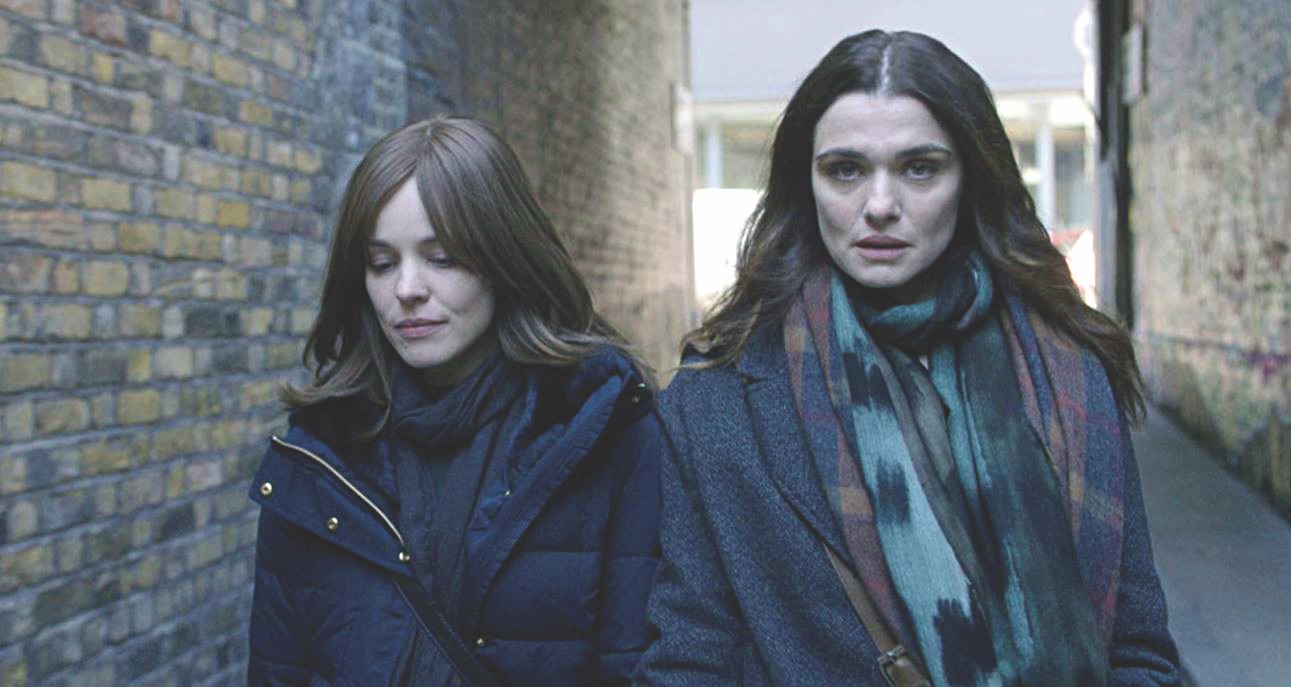
Ronit from ‘Disobedience’
Ronit (Rachel Weisz) is a bisexual woman who has left the ultra-Orthodox community in London on a path of self-discovery and sexual liberation. However, when her father, a well-respected rabbi, dies, she returns to the community that cast her out for being queer. Ronit struggles with a common circumstance for many LGBTQ children: mourning a relative whose homophobia has already killed their relationship. Throughout the film, Ronit grapples with cutting humiliation. She discovers that the only reason she was even told about her father’s death is that Esti (Rachel McAdams), her former lover, sent notice so they would have a chance to reunite. Ronit is headstrong and forgiving. Even after being cast out from her family and community, she’s dead set on giving her father a final goodbye.
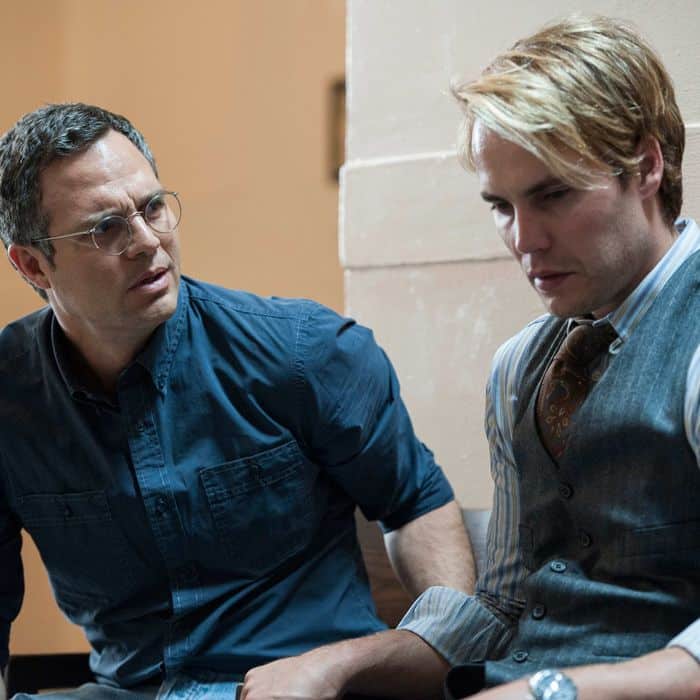
Ned Weeks from ‘The Normal Heart’
Written by the iconic Jewish gay rights and AIDS activist Larry Kramer, who died last month, and based on his experiences, “The Normal Heart” follows Ned Weeks (Mark Ruffalo), a Jewish-American writer who organizes a group focused on bringing attention to how a mysterious illness is slaughtering an oddly specific group of New Yorkers: gay men. Ned unveils the atrocities of the AIDS crisis and the countless ways its victims were demeaned while dying. One particularly horrifying scene shows hospital doctors refusing to examine one AIDS patient or even issue him a death certificate. Instead, they throw the young man out with the garbage. Ned is a window into this world and his unapologetic outspokenness teaches us that you have to do something when no one else will.
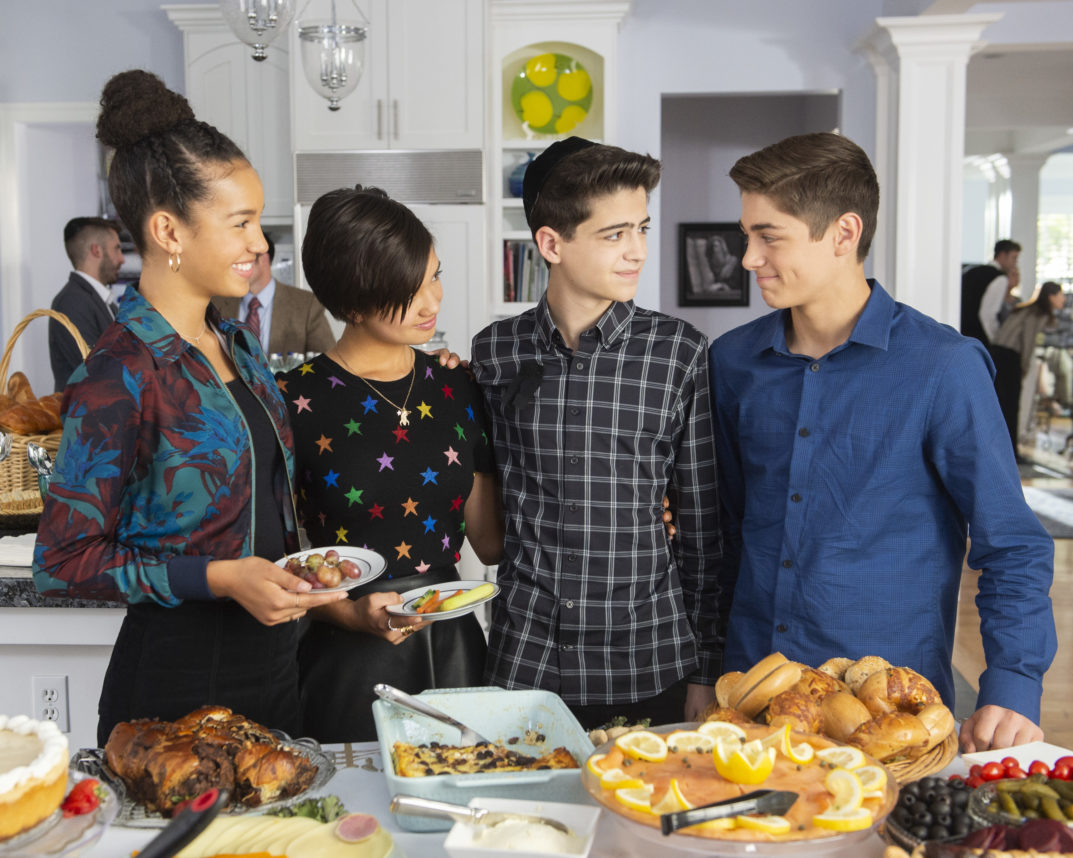
Disney Channel/Fred Hayes
Cyrus Goodman from ‘Andi Mack’
“Andi Mack” was the premiere kids show on Disney Channel where Cyrus Goodman (Joshua Rush) became the first LGBTQ character in children’s television. The 13-year-old Jewish kid normalized being queer to Generation Z, to the benefit of LGBTQ viewers and their straight peers. Plus, it doesn’t hurt that Cyrus comes out in a delightfully Jewish way — over schmear. When a friend is overwhelmed by the spread, Cyrus says, “Well, that of course is Aunt Ruthie’s kugel, that’s your classic bagel and lox, that’s gefilte fish — skip that — and I’m gay.”
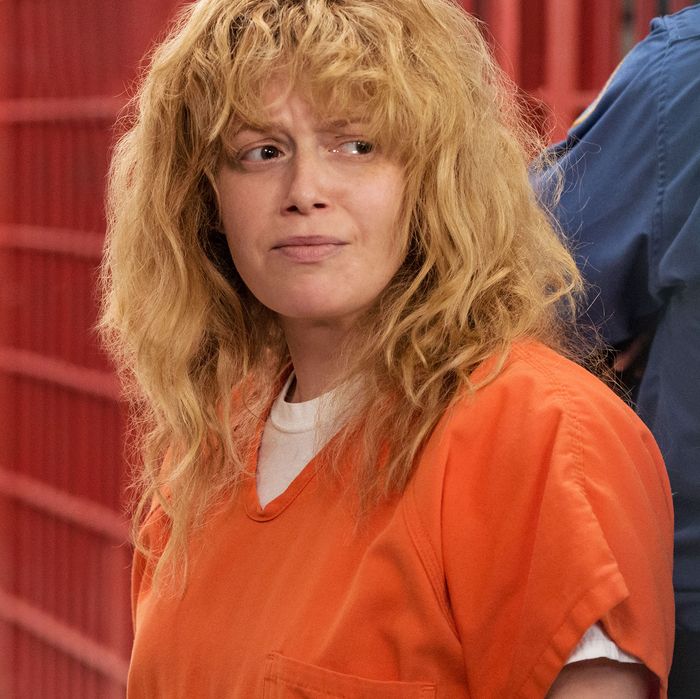
Nicky Nichols from ‘Orange Is the New Black’
An out lesbian who goes from a flailing junkie to a mother-like figure to her elderly friend and young inmates, Nichols has an immense arc and Jewish-centric focus on family, even in maximum security. Although it’s impossible to miss her Jewish culture (she’s played by Natasha Lyonne after all), she has one of the best bat mitzvah scenes in celluloid history. Overwhelmed by being the ball in a game of malicious, manipulative pingpong by her divorced parents, young Nichols goes off-script from her dvar Torah. She explains what the Torah portion really means to her and how it relates to her life. “That’s how I know I’m Jewish,” she announces. “Even my own parents hate me.” After delivering an impressive summary of Balaam and the donkey from Numbers, Nichols gives her parents a well-deserved grilling from the podium. “I actually like this Torah portion,” she declares. “Because I’m the ass and I can finally talk! So here’s what I want to know: Why is it so important to God that you honor your father and mother when they really don’t give a s— about you?”
Ariel Sobel is the Journal’s social media editor.
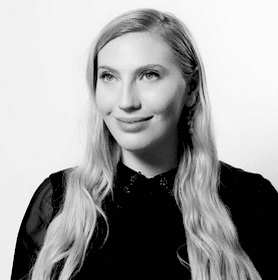

































 More news and opinions than at a Shabbat dinner, right in your inbox.
More news and opinions than at a Shabbat dinner, right in your inbox.